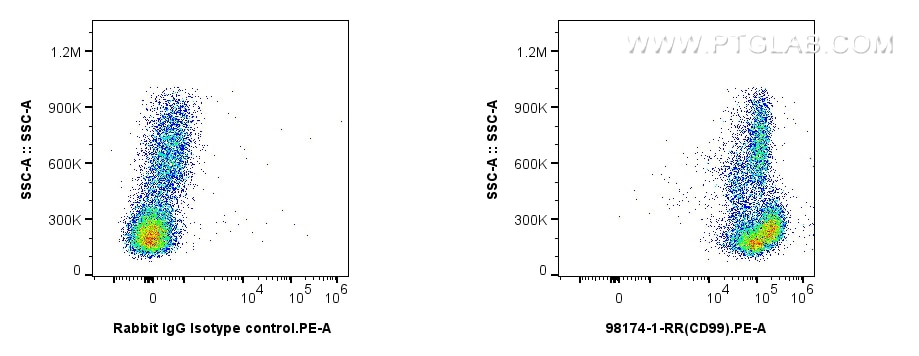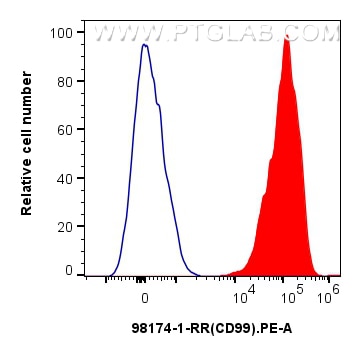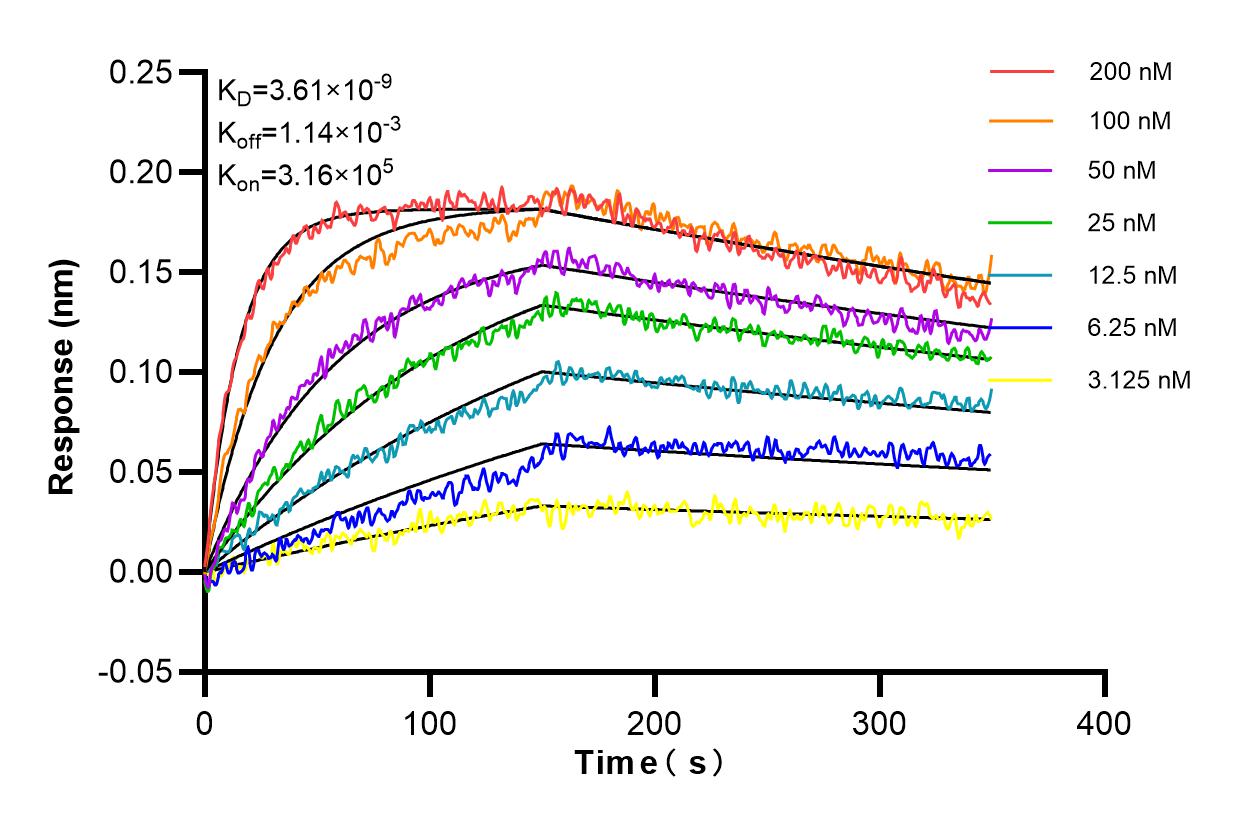Validation Data Gallery
Tested Applications
| Positive FC detected in | human PBMCs |
Recommended dilution
| Application | Dilution |
|---|---|
| This reagent has been tested for flow cytometric analysis. It is recommended that this reagent should be titrated in each testing system to obtain optimal results. | |
| Sample-dependent, Check data in validation data gallery. | |
Product Information
98174-1-RR targets CD99 in FC applications and shows reactivity with human samples.
| Tested Reactivity | human |
| Host / Isotype | Rabbit / IgG |
| Class | Recombinant |
| Type | Antibody |
| Immunogen | Recombinant Protein 相同性解析による交差性が予測される生物種 |
| Full Name | CD99 molecule |
| Calculated molecular weight | 19 kDa, 16 kDa, 17 kDa |
| GenBank accession number | BC021620 |
| Gene Symbol | CD99 |
| Gene ID (NCBI) | 4267 |
| RRID | AB_3672317 |
| Conjugate | Unconjugated |
| Form | Liquid |
| Purification Method | Protein A purfication |
| UNIPROT ID | P14209 |
| Storage Buffer | PBS with 0.09% sodium azide |
| Storage Conditions | Store at 2 - 8°C. Stable for one year after shipment. |
Background Information
CD99, also known as MIC2, is a heavily O-glycosylated transmembrane protein involved in T-cell adhesion processes and in spontaneous rosette formation with erythrocytes. CD99 is broadly distributed on many cell types, with particularly strong expression on human cortical thymocytes, Ewing's sarcoma cells and peripheral primitive neuroectodermal tumors (PMID: 9794396; 16984917). In normal cells, CD99 has been functionally implicated in cell adhesion, migration, apoptosis, differentiation, activation, and proliferation of lymphocytes and monocyte extravasation and transport of several transmembrane proteins (PMID: 16984917).
Protocols
| Product Specific Protocols | |
|---|---|
| FC protocol for CD99 antibody 98174-1-RR | Download protocol |
| Standard Protocols | |
|---|---|
| Click here to view our Standard Protocols |


